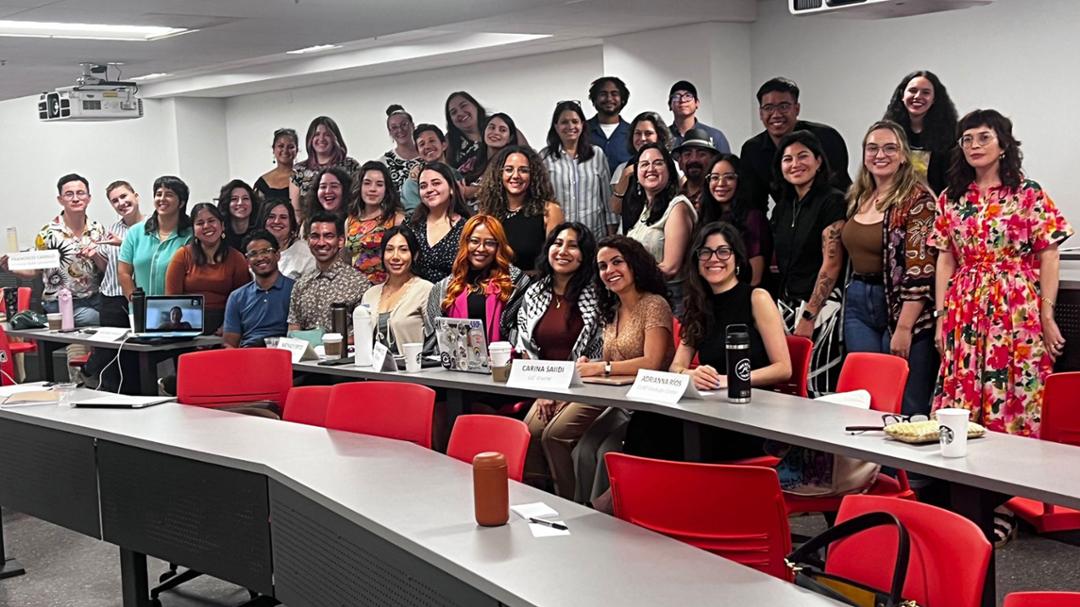Carolina Perez and Nina Hernandez De La Cerda Clinton are looking to change the way the Latinx population is perceived, projected and supported in media and psychological care.
Two Texas Tech University graduate students have received the Crossing Latinidades Fellowship, an award established by the Mellon Foundation.
The fellowship ignites cross-institutional and cross-regional comparative research and the training of doctoral students in emerging areas of inquiry about Latino studies. It is funded by a grant from the Mellon Foundation and anchors the Alliance of Hispanic Serving Research Universities, a consortium of R1 Hispanic Serving Institutions.
Texas Tech is one of 22 universities that make up this consortium.
This is the fourth year that students from Texas Tech’s Graduate School were honored with the fellowship.
The Latinx population is most underrepresented in U.S. doctoral programs. That said, students do not need to be Hispanic or Latino to receive this fellowship, they just need to research Latin topics. However, this year’s recipients at Texas Tech proudly integrate their Latina heritage.
Carolina Perez and Nina Hernandez De La Cerda Clinton are both pursuing their doctoral degrees – Carolina in the College of Media & Communication and Nina in the College of Arts & Sciences.
Both students want the Latinx population to be better understood, represented and served in society. They’re accomplishing that in distinctly different ways, though.
Carolina
Carolina grew up the daughter of first-generation Cuban American parents. Raised in Miami, Florida, her hometown wove her Cuban heritage into the culture around her.
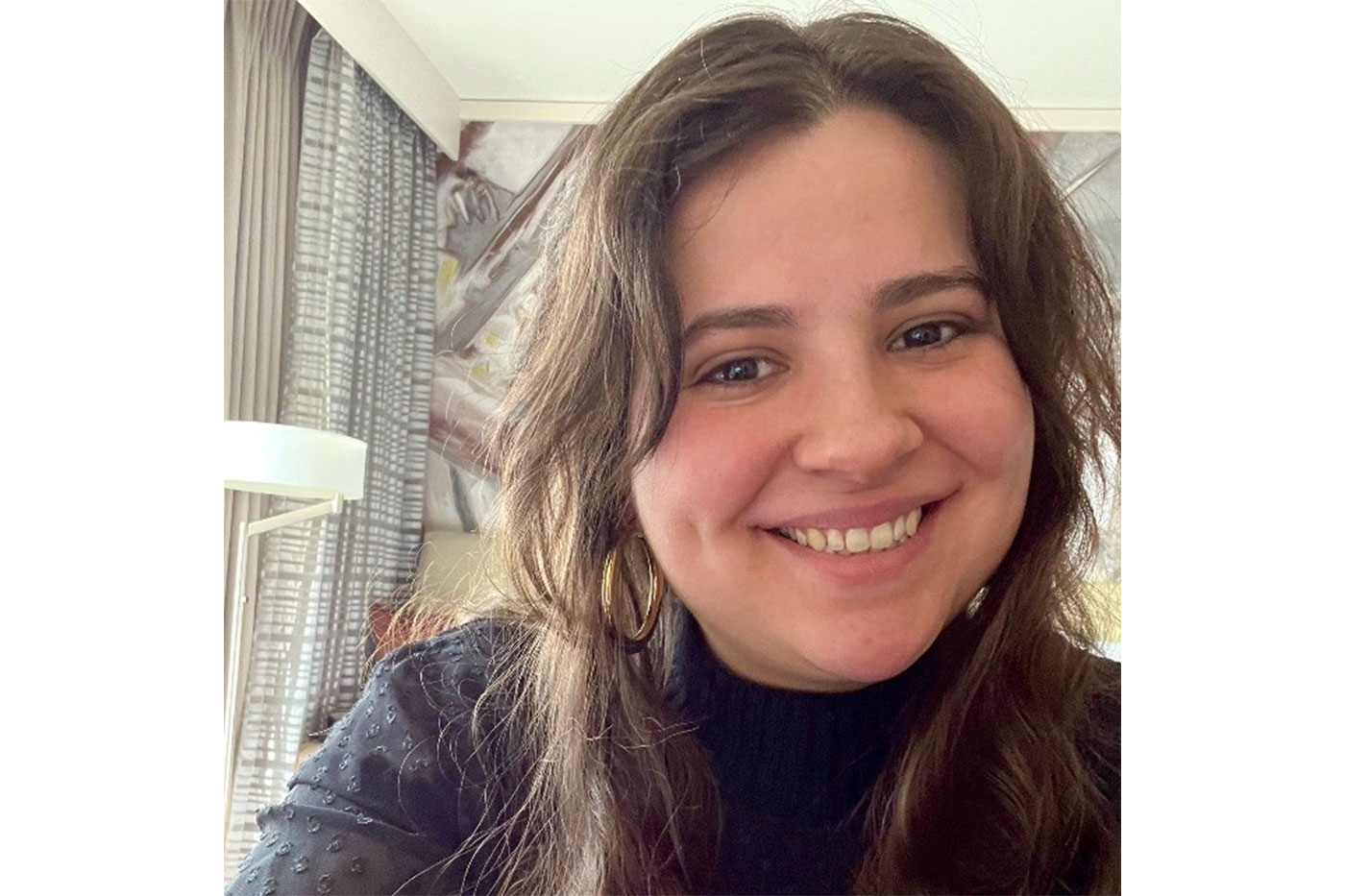
“I didn’t know I had an accent until I got to college,” Carolina said.
She lived with her parents and grandparents as a child, so she was surrounded by the Spanish language. Even as she learned English in school, many of her classmates spoke like she did.
When she attended Florida State University, she suddenly became aware of ways her identity was different from those around her.
“I suddenly didn’t feel American enough,” she recalled.
This felt odd, since Carolina grew up watching all the same TV shows, movies and even playing the same video games as her peers. In many ways, they had similar childhoods. But when Carolina left home, she started seeing differences.
She says she relearned American culture in a way, just from moving from one side of Florida to another.
“I was not an outsider, but I didn’t quite know who I was,” she said.
She began to reflect and try to discern where this thread of “otherness” had started. Had she known it when it began? Did it start before college?
She reminisced on the media she loved as a child. PBS Kids’ “Dragon Tales” and “Sagwa the Chinese Siamese Cat” were her favorites, along with classics such as “Barney & Friends” and “Out of the Box.”
As Carolina grew, so did her interests. She developed an affinity for anime and especially loved the Harry Potter video games that came out in the early 2000s.
Those stories felt universal to her. But she remembers the moment that changed.
She saw “Bring It On: Fight to the Finish” when it came out in 2009 and was struck by the depiction of a Latina cheerleader and her family. As part of the plot, young Lina Cruz moves from East Los Angeles to Malibu when her mother, a maid, marries a wealthy man.
“There is a scene that paints Lina as stupid because she doesn’t know what a bidet is,” Carolina said. “Why is the perception that a Latina wouldn’t know that? It made me mad.”
As Carolina’s media consumption evolved, these one-dimensional representations continued to stand out. By the time she was in graduate school, she shifted her academic focus from marketing to academic research to better understand this phenomenon.
Whether the stereotypes had been there early on, and she was just too young to see them, or whether they came later, Carolina became fascinated by how media representation affects those in diasporic communities.
She became especially intrigued by the experience of second-generation Americans, like herself.
“Historically in academic research there is hesitancy around ‘me-search,’” Carolina explains. “For a long time, academia has discouraged research that’s personal to the researcher.”
But she argues some of the best research outcomes can come from a place of personal passion and understanding.
“I care about my community,” she said. “My research stems from my experiences growing up and I’m honest about that.”
Carolina hopes, at the end of the day, her research helps people better understand one another and contributes to media that more accurately represents the American experience, for everyone.
Nina
Nina was raised as a second-generation American in Austin.
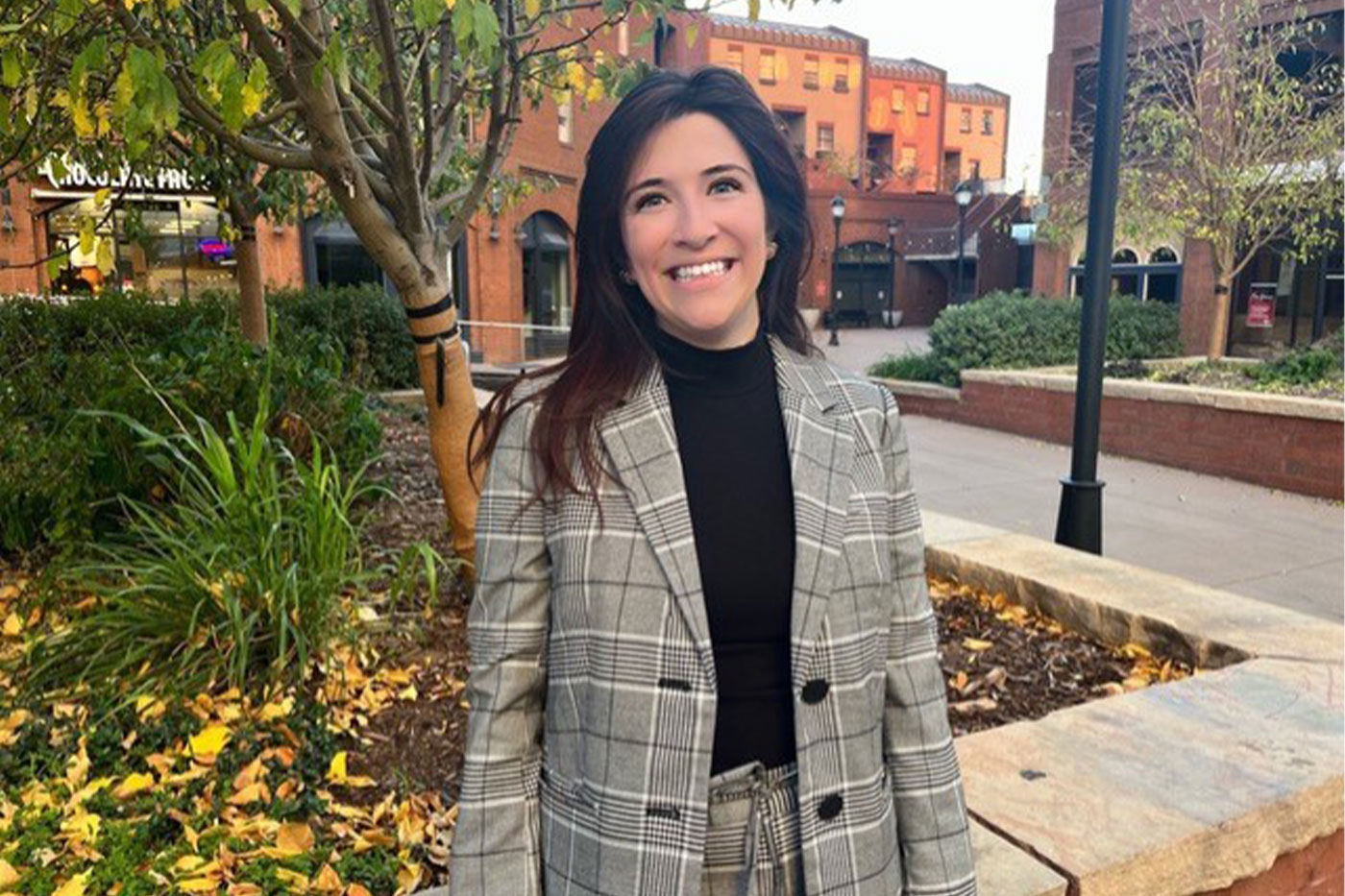
“Growing up, I often felt pulled in two different directions between American and Mexican culture,” Nina said.
She says navigating those two worlds left her feeling as though she was never quite “American enough” for mainstream culture or fully “Latina enough” for her community.
“I was constantly balancing cultural expectations, language and identity, trying to find a sense of belonging in both spaces,” she said. “This internal conflict, while difficult, also shaped my resilience and fueled my passion for research on the emotional toll of language brokering and the broader experiences of biocultural individuals.”
Nina often found herself language brokering for her mother who was a Mexican immigrant, sometimes helping with documents or medical visits.
“If a child is trying to translate a medical diagnosis or treatment plan, that’s a lot of pressure,” she said.
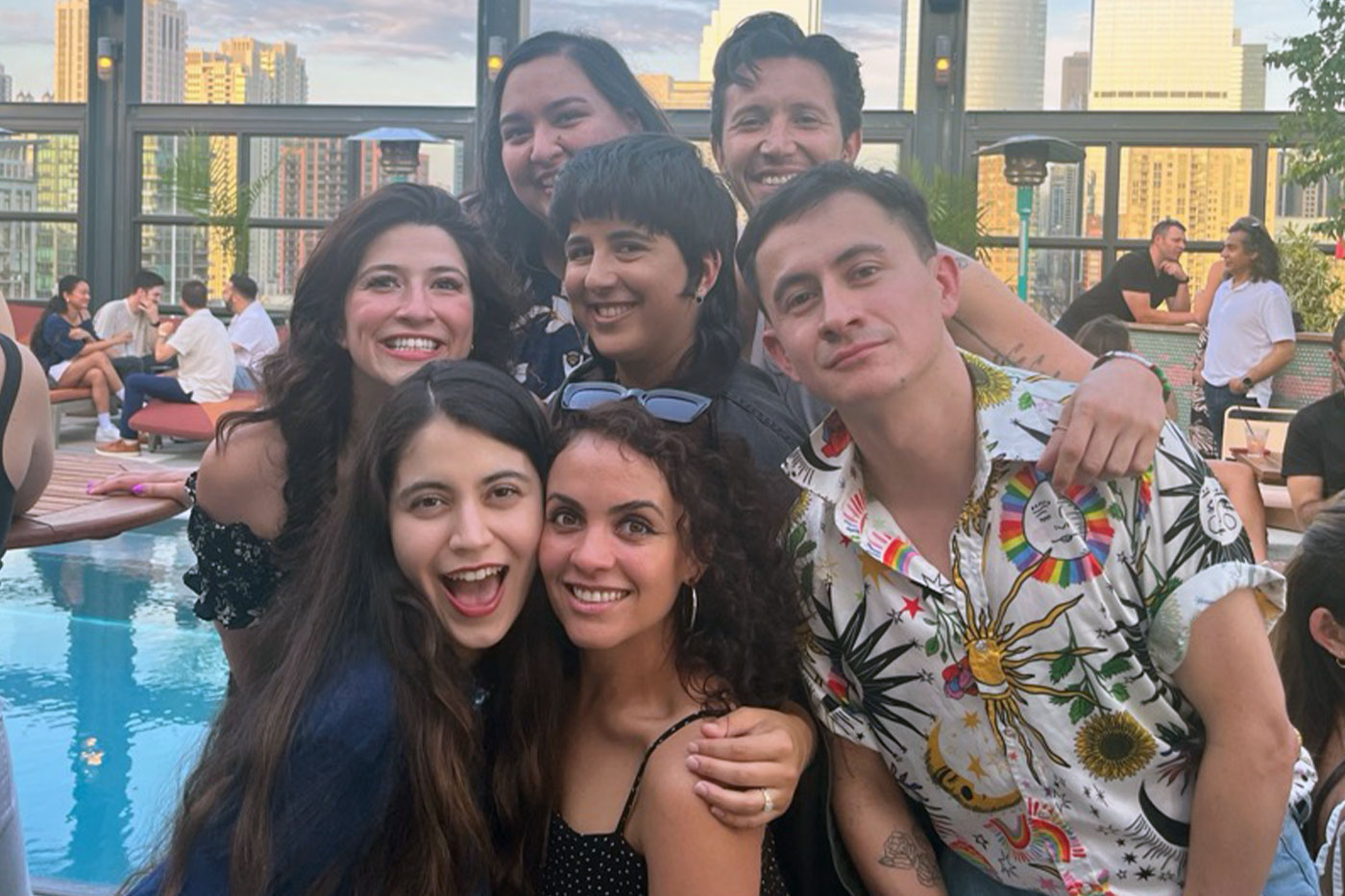
Nina’s research in the Department of Psychological Sciences examines the emotional toll language brokering has on children and adolescents. She says increased research can result in more support for minors, including better psychological care. For children under 10, previous research has shown that language brokering increases anxiety and depression. In contrast, as children get older, being able to help family members can increase levels of confidence and satisfaction.
As a doctoral candidate, Nina spends multiple hours a week providing therapy sessions both on and off campus. She has had assistantships that account for 20 hours each week, and all of this is in addition to taking and teaching classes.
“The Crossing Latinidades fellowship takes the place of my assistantship, which frees up 20 hours a week to solely focus on my research,” she explains. “And financial assistance is double what my stipend was before.”
For doctoral students, this support of their research is priceless. It gives them a competitive advantage and allows them to move their dissertation forward.
An Extra Boost
“Students at Texas Tech who’ve received this fellowship in past years are already presenting at conferences and contributing to the global conversation,” said Miguel Levario, associate professor of history and program coordinator for the Alliance of Hispanic Serving Research Universities at Texas Tech.
Levario emphasizes this fellowship is a commitment from participating universities. While the fellowship was established by the Mellon Foundation, each institution funds their own cohort.
“It’s like a buy-in,” he explained. “Texas Tech’s financial support demonstrates our tangible commitment to be not only Hispanic-enrolling, but Hispanic-serving.”
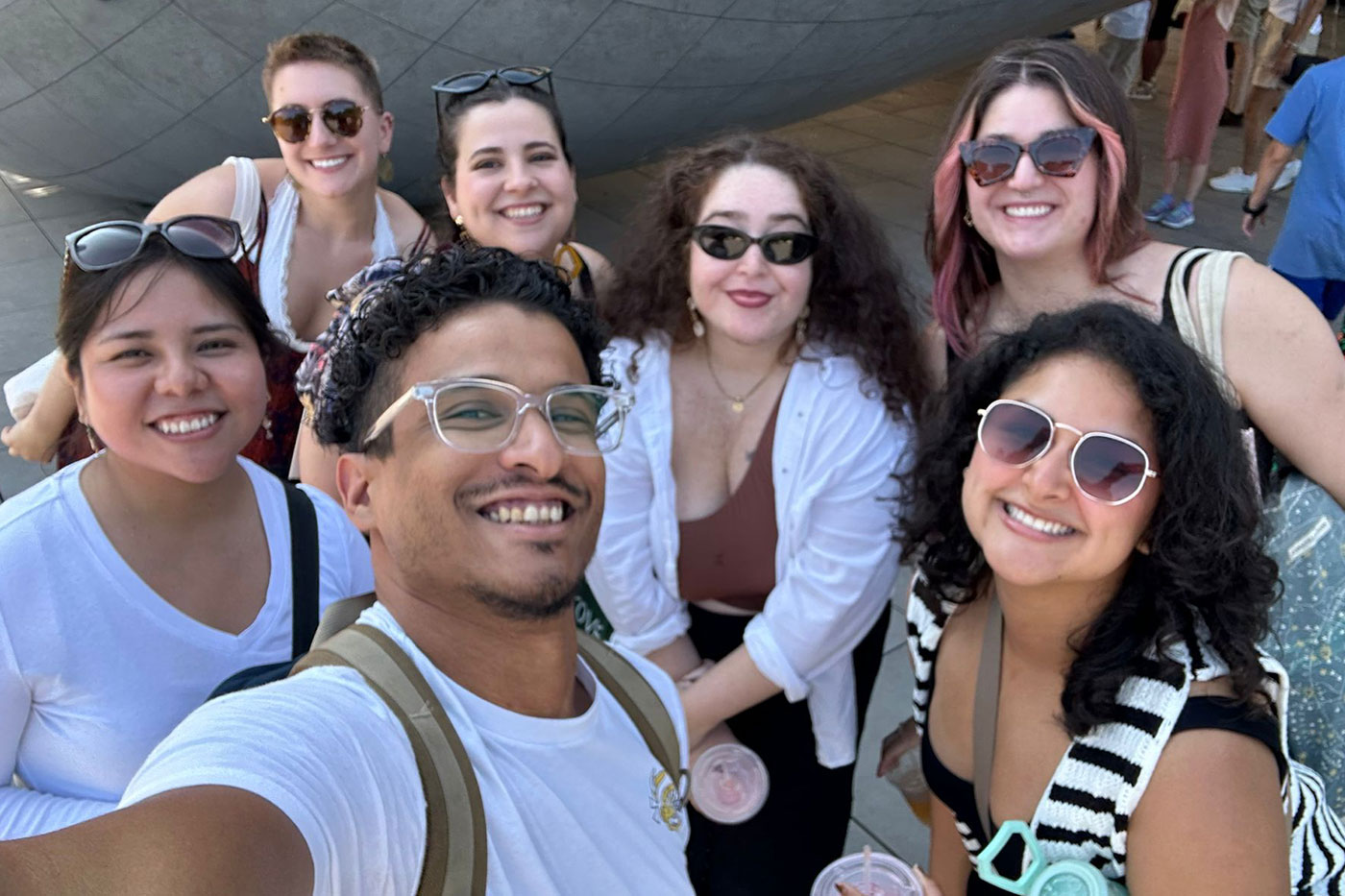
The fellowship funds one year of research for both Carolina and Nina. That began over the summer with the “Crossing Latinidades Summer Institute in Latin/a/x/e Humanities Studies Methodologies and Theories” at the University of Illinois Chicago. Students from each participating university traveled to Chicago for a week of in-person development, networking and support. The event was a way to kick-off ideas for each candidate’s dissertation.
While each Texas Tech student has an on-campus adviser, they also are assigned a mentor from another university as part of this fellowship. This extra investment is invaluable to researchers. Previous Texas Tech fellows have had mentors from Ivy League schools such as Yale.
“This fellowship is an important aspect of Texas Tech’s commitment as a Hispanic-Serving Institution,” said Jorge Iber, professor in the Department of History. “These two recipients are shining examples of what members of the Spanish-surnamed community can accomplish in an academic setting. They also point the way toward areas of study that shed insights into the issues impacting not only that comunidad, but important elements of American society.”
Filling the Gap
Carolina and Nina hope when they complete their research, people in West Texas and beyond feel included in national conversations about media and psychological care.
“Unfortunately, there is a gap in research when it comes to how these topics affect Latino populations,” Carolina said. “The research exists for other demographics, now we need to include everyone in the conversation.”
The Latinx population is growing rapidly in the U.S., which means more Spanish speakers in all facets of society. The challenge to offer superior care and support increases along with it.
“I want to understand how these experiences are affecting individuals,” Nina said. “Then we can better help them.”

